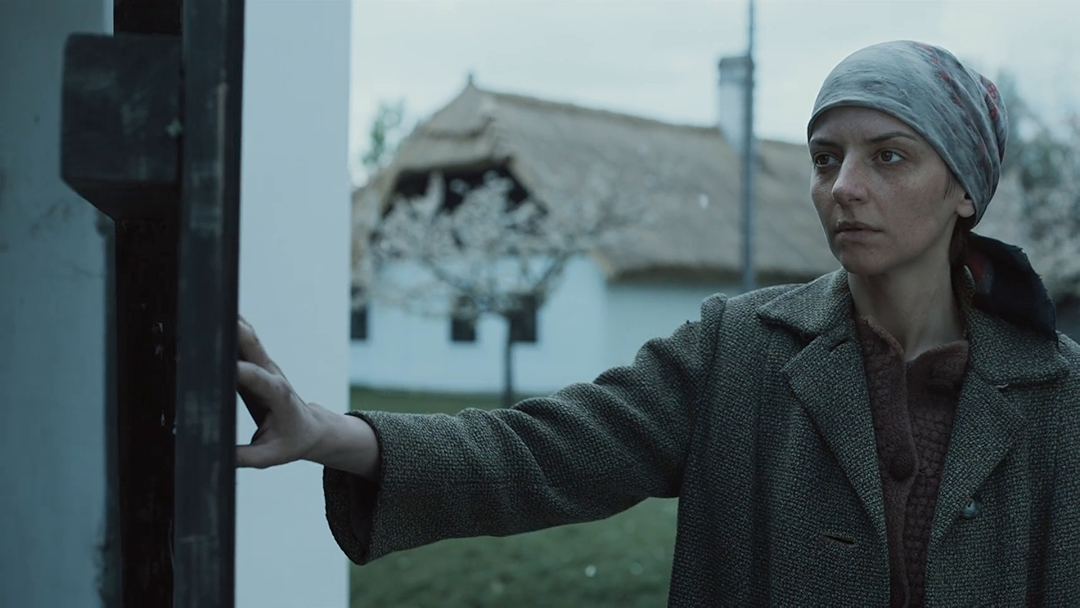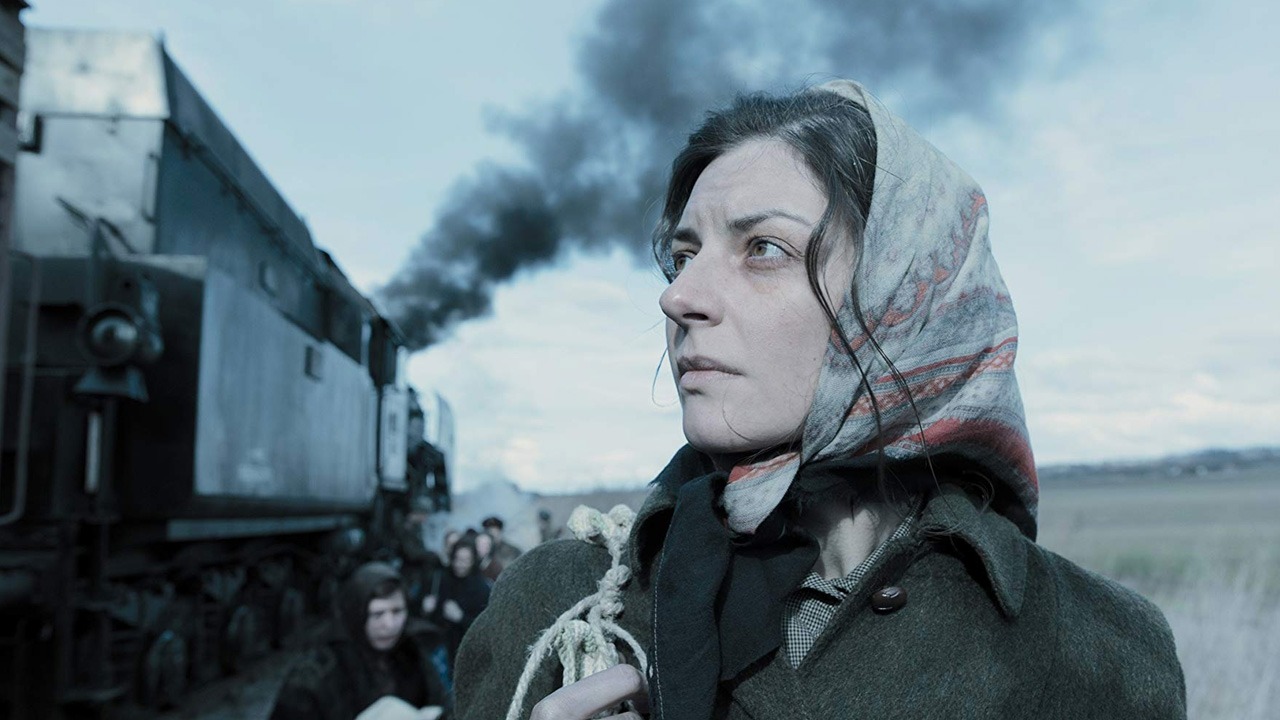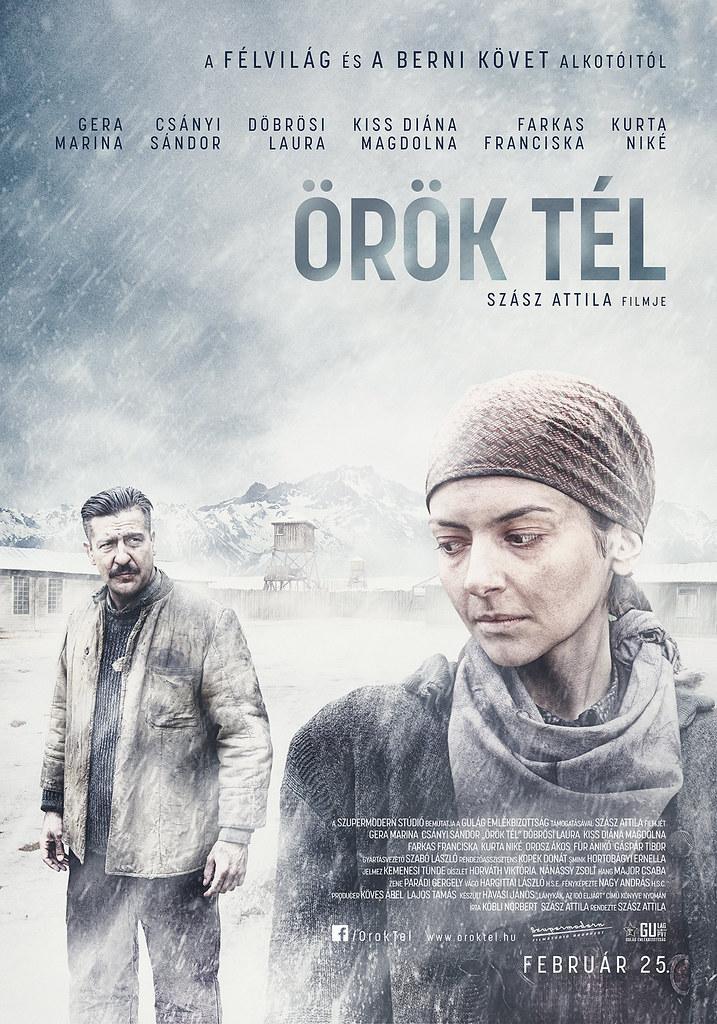Eternal Winter
A profound and harrowing saga of survival, memory, and forbidden love within the unforgiving depths of a Soviet labor camp.
A Hidden Chapter of History Brought to Screen
Eternal Winter unfolds in late 1944 Hungary, when Soviet soldiers invade the village of a German-speaking minority known as the Swabians, rounding up young women and deporting them to forced labor camps in Ukraine. Among them is Irén, a mother who thought she would work only a winter wheat harvest, not harsh Siberian coal mines. Surreal in its banality and brutality, the narrative carefully reveals how entire communities were punished under the doctrine of collective guilt, regardless of Nazi affiliation. The film underscores a tragic irony: Irén and her neighbors, largely peaceable civilians, are suddenly treated as enemies due to heritage. Amid this, she meets Rajmund, a Yugoslav fellow prisoner, who becomes both survivor mentor and romantic refuge. Their bond evolves quietly—often in desperation, rarely in the light—yet it blooms with tenderness and strategy in a landscape ruled by frost and fear.
The film is rooted in reality, reflecting the real fate of some 700,000 Hungarians deported to Soviet labor camps post-World War II. The screenplay, authored by Attila Szász and Norbert Köbli, draws from survivor testimonies to reconstruct a story that is both specific and emblematic. The harsh condition of labor, the freezing cold, the collapsing hopes, are all captured with stark authenticity. Yet what lingers is not just suffering—but how endurance, love, and dignity persist in the most hopeless circumstances. The characters navigate daily depravation: starvation, fever, senseless violence—but also subtle small acts of survival and mutual care. Sound and visuals reinforce this immersion: deadening white snow, coal dust, the echo of voices under guard towers, and the relentless footfalls through icy corridors. The film does not exult in violence, but forces viewers to feel it.
Themes of Identity, Trauma, and Reconciliation
Eternal Winter grapples with deep themes: identity forced into exile, guilt foisted on the innocent, and the fragile terrain of hope. Irén’s status as ethnic German becomes both stigma and burden. Her punishment is political even before it is personal. Yet, within the mines and barracks, she reclaims agency—not through heroism, but through daily survival and emotional presence. Rajmund warns against dreaming, calling hope “a liability”; Irén insists that dreams save her from madness—and this tension lies at the film’s emotional axis.
Their love is understated but revolutionary: underground, amid hunger and death, they allow themselves human connection. This shift—emotional and existential—becomes a defiant gesture of life. The film also explores reconciliation: characters must negotiate between maintaining dignity and seeking mercy, between hatred and forgiveness. Irén’s relationships with other inmates—muted friends, mothers broken by cold—reveal shared suffering and collective memory. The psychological realism is enhanced by physical detail: black-market trading, Bible pages rolled into cigarettes, typhus sores, and frost-bitten flesh illustrate how survival dehumanizes and demands adaptation. Yet through it all, dignity flickers: Irén protects her daughter’s memory; Rajmund shows loyalty. Their final reunion—mother and child mirrored in frozen reflection—is heartbreak and affirmation intertwined.
Reception, Awards, and Cultural Resonance
Upon release, Eternal Winter earned nominations at film festivals worldwide and carried forward a distinct national narrative previously neglected. Marina Gera’s Emmy win marked a milestone for Hungarian cinema. It received Best Narrative Feature awards at film festivals like Fort Lauderdale and Nashville, while its director received accolades in Montreal. Critics lauded it as "a gut-punch of emotion" and “historically substantial,” giving voice to previously untold wartime consequences. The film is often described as hauntingly beautiful, emotionally devastating, and medically detailed—it may not draw audiences to box-office fame, but invites respect for authenticity over spectacle.
Its significance extends beyond awards: it brought Hungarian deportations to Soviet labor camps into public discourse. As the Beloit Festival described, this is the first feature film to chronicle the suffering of 700,000 Hungarian victims of post-war deportations. The cultural impact resonates in Hungary’s evolving remembrance landscape, where state and civil institutions recognize these injustices as part of national memory. While the film does not shy from collective trauma, it refuses sentimentality, instead responding to suffering with respect, complexity, and narrative restraint.
Where and How to Watch
Eternal Winter is available for streaming on Prime Video in many regions, often included with subscription or available to rent or buy digitally. It can also be rented or purchased on Apple TV and similar platforms, in HD resolution and with subtitles for English or other languages. Physical disc editions may be found through distributors of Central European cinema. The film language is Hungarian and Russian, with English subtitles typically provided. It is rated for mature audiences due to graphic depiction of violence, malnutrition, and emotional trauma. Viewers are encouraged to watch with attention to audio subtleties and performance nuance, as dialogue is minimal and emotional weight is carried through gesture and gaze as much as spoken word.


Vision and Craft: Cinematic Realism Meets Psychological Depth
Attila Szász’s direction favors observational restraint rather than sensationalism. The cold, grey palette echoes the emotional numbness of the camp, while muted production design conveys bleakness not as spectacle but as environment. Marina Gera's performance as Irén won her the International Emmy for Best Actress—the first Hungarian ever to receive that honor —marking her intensity and vulnerability as pivotal to the film’s impact. She embodies motherly determination fractured by trauma, anchored in the desperation to survive for her daughter. Sándor Csányi, as Rajmund, offers quiet strength: his practical survival lessons, moral codes, and compassionate irony become catalysts for Irén’s own adaptation.
Critical commentary highlights the film’s painful authenticity, particularly its attention to historical detail—from the transit room to quotas that dictate daily misery. Cinematographer András Nagy captures both the vast nothingness of Siberian camps and the claustrophobic interiors of barracks. Composer Gergely Parádi’s sound design is sparse, amplifying the crunch of snow, the scrape of shovels, and the ragged breaths during fever—the ambient soundtrack of cold, hunger, and fear. The film trusts silence as well as dialogue, letting prolonged moments convey hopelessness or resilience.
While some reviewers mention uneven narrative pacing, especially in the final act, this may reflect not weakness but deliberate disquiet: hope is a double-edged sword in camp life, and narrative tidiness would feel dishonest. The emotional arc—Irén’s gradual hardening, Rajmund’s pragmatic logic, their shared survival code—emerges through layers rather than linear plot. It is a slow, sometimes painful revelation of human resilience.






Awarded with the Highest Distinction
Eternal Winter earned the Excellence Award for its moving portrayal of overlooked history, its blend of grim realism and restrained human warmth, and its commitment to telling a story of suffering, survival, and love that resonates long after the credits end. It deserves to be seen not simply as a film, but as a testament—difficult, profound, unforgettable.






